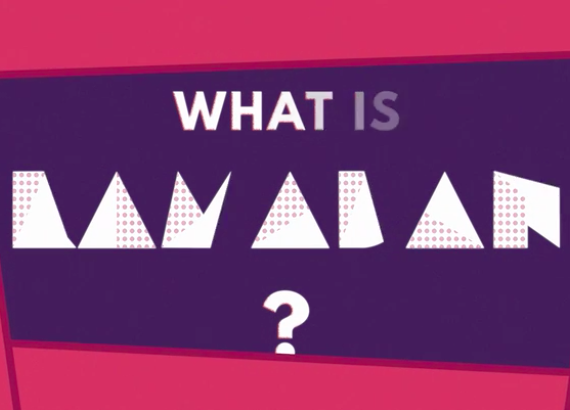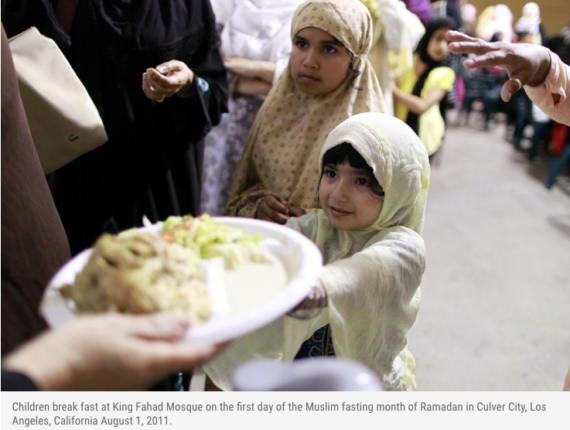
Newsweek
By Marc Schneier
May 18, 2018

I have been an Orthodox rabbi for more than 35 years, serving a large and affluent congregation in the Hamptons. I would like to believe I have made a positive difference in the lives of my congregants, and a meaningful contribution to my community and society.
And yet, as we enter the season of Ramadan, I am moved to share a transcendent experience I had at a Ramadan iftar (fast-breaking meal) last June in Los Angeles that gave me a precious opportunity to serve others and to experience the sanctity and joy of human fellowship in a way I had never before experienced.
In fact, I have attended many iftars in recent years. I have come to relish the infectiously convivial spirit at these occasions, as Muslim families who have abstained from food and water for the preceding day come together to break bread together as a community.
As I walked into the iftar dinner at the ornate King Fahad Mosque in the Culver City section of Los Angeles, to which I had been invited as the guest speaker, one of the organizers asked me if I would not only offer remarks, but also serve dinner to participants. He explained that having a rabbi serve food at the event would be a tangible expression of Jewish-Muslim solidarity.
It turned out to be much more than that. Following my remarks, I left my place on the dais and headed over to a long serving table, where a large crowd of congregants had already begun to gather with plates in hand. I donned an apron and took my place alongside several other servers; sensing as I did so a palpable stirring of surprise and appreciation among those in line that a rabbi was giving meaning to his words of unity from the podium by humbly taking his place at the serving table. Soon I was ladling out food—spicy lamb, cooked vegetables, salad, fruit and baklava pastries—to hundreds of people, men, women and children—and bantering happily with many of them, especially the adorable children.

When people asked whether I would be eating myself, I explained that I would not, because my faith does not allow me to consume non-kosher food. Yet the fact that I was serving non-kosher food as a gesture of support with the Muslim community was a manifestation of the long road I have travelled from the person I was 15 years ago; someone who had never entered a mosque or Muslim venue and who feared and demonized Muslims. Indeed, I remember that after accepting an invitation in 2005 to speak to students at a Muslim high school in Queens, New York, I had second thoughts as I was walking to the school building, beset by paranoia concerning my safety.
Yet as I stood there at the King Fahad Mosque gazing into the eyes of those I was serving, I realized at that moment that humbly serving food to this group of American Muslims was affording me a precious opportunity to feel their humanity, and my connectedness to them in a more profound way than ever before.
For years, I had referred to Muslims in speeches and op-ed articles as my “brothers and sisters.” Now, I felt I was experiencing the underlying meaning of those words for the very first time. While I had interacted at that point with many Imams and other Muslim community leaders, this was really the first time I had the chance to speak, learn and even joke with just regular congregants.
Each of them had a story and each impressed me with their sincerity, love and kindness. As Muslim Americans, their concerns and issues were not unlike those of Jewish Americans, and that was both refreshing and inspiring to me. It reaffirmed my long contention that as children of Abraham, we have more in common between our faiths than our differences.
So, why did I have my sublime moment of human connection in a mosque? I believe the answer can be found in the fact that the Torah enjoins us to “Love the stranger 36 times,” rather than “Love thy neighbor.” In other words, that it is a higher calling to love someone different from oneself than to love one’s own. Of course, it is a good and right thing for me to love a fellow Jew, but it is far easier for me to do that than to reach out and embrace a Muslim—just as it is easier for a Muslim to connect with a co-religionist than it is for him to reach out and embrace me.
In any case, it took a Ramadan iftar to fully take me beyond my earlier reserve, and, for the first time, share the humanity of Muslims as deeply as I do that of my fellow Jews. My experience at the LA iftar has made me a more open and giving person with enhanced capability to serve both my fellow Jews, my Muslim friends and people of all backgrounds.
Rabbi Marc Schneier is the Founding Rabbi of The Hampton Synagogue and President of the Foundation for Ethnic Understanding and co-author with Imam Shamsi Ali of Sons of Abraham: A Candid Conversation about the Issues That Divide and Unite Jews and Muslims.
Click here to read the original article.
Copyright © 2025 Foundation For Ethnic Understanding. All rights reserved. | Privacy Policy